If there’s one thing we all prefer to speak about in euphemisms, it’s toilets and bathrooms.
No one likes to say too much about this topic, and one of the best ways we can avoid doing so is by using slang terms.
In Britain, several slang terms mean toilet in one way or another.
From the most sanitized and safe terms to some of the more vulgar and less permissible, there are many ways to refer to a toilet in British slang.
Let’s find out about some of them.
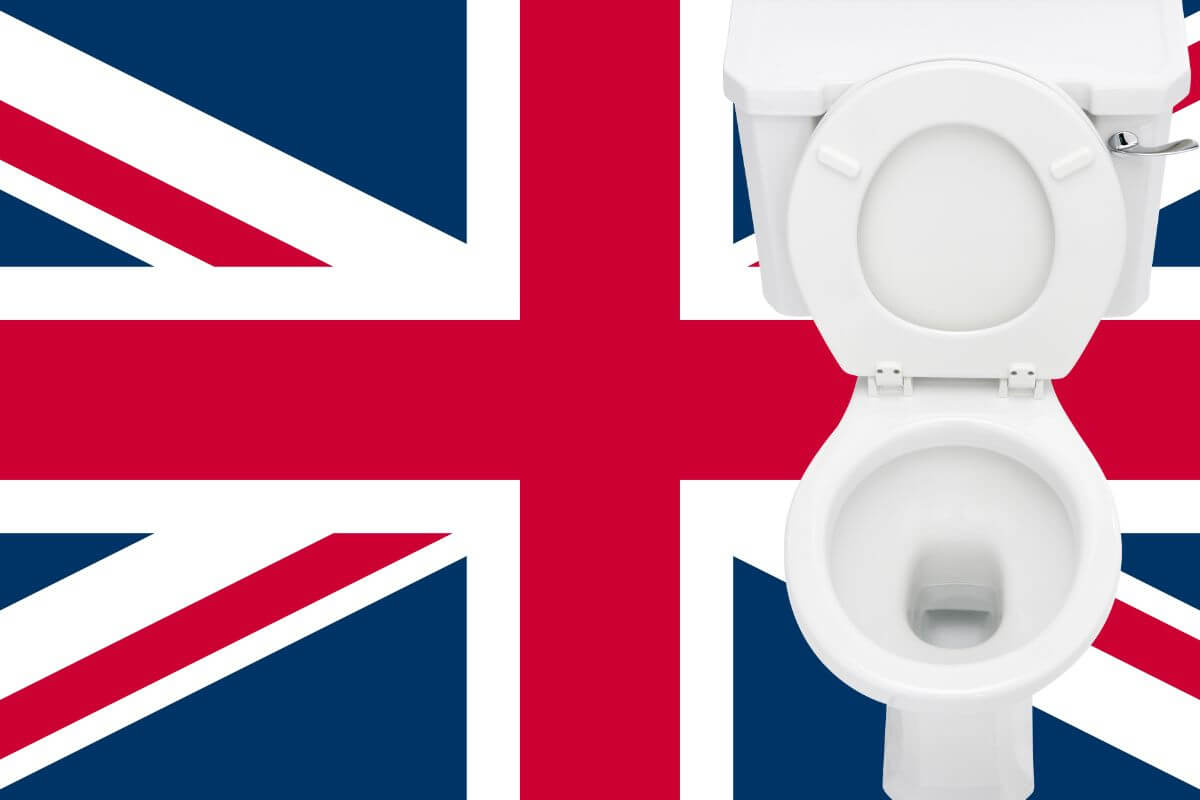
British Slang For Toilet
British slang is filled with a variety of terms for just about everything, and the toilet is no exception.
Here’s a roundup of 11 slang words and phrases that you might not have come across before, each with its own unique story.
Loo
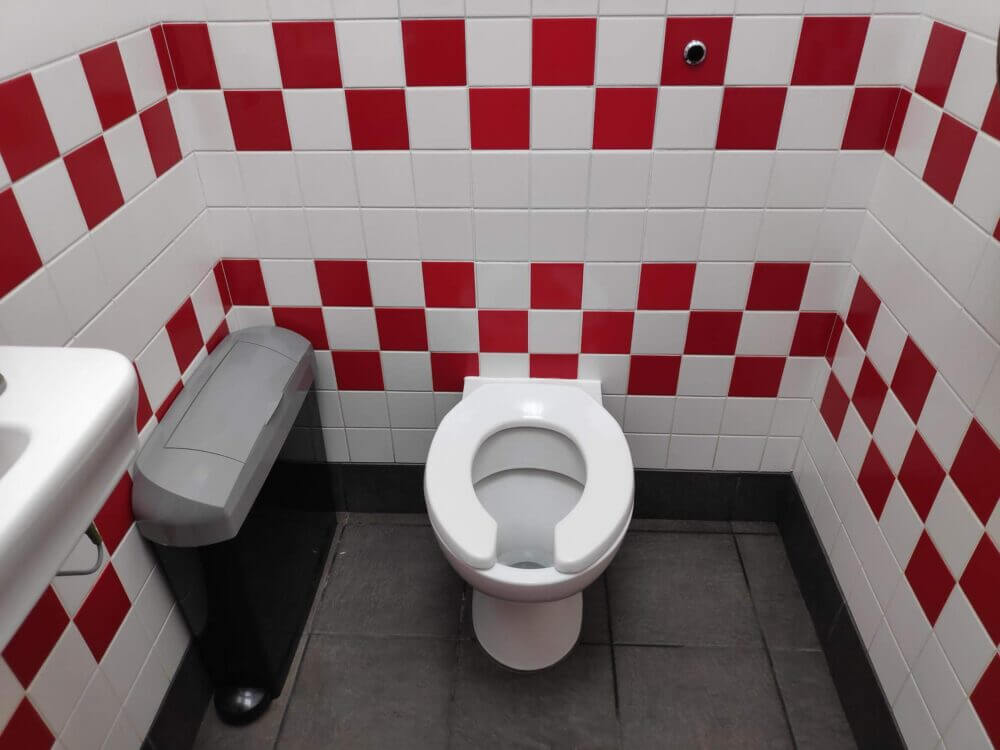
If you use one slang term for toilet while you’re in Britain, let it be this one.
This one is totally ubiquitous, used and understood in all parts of the country.
It’s the polite way to refer to the toilet, it won’t get you in any trouble, and it rolls off the tongue quite nicely.
This is a relatively recent addition to the British lexicon, having first been recorded in 1940 but also possibly as far back as 1922.
It is no doubt older in colloquial use than either of these dates, but it’s hard to say when and how it was used before that.
In terms of how the word arose, we aren’t really sure.
The most common notion is that it comes from the French l’eau, which means water, and the expression ‘guardez l’eau’, which means “watch out for the water.”
It’s possibly nautical in origin.
We aren’t entirely sure.
Lavvy
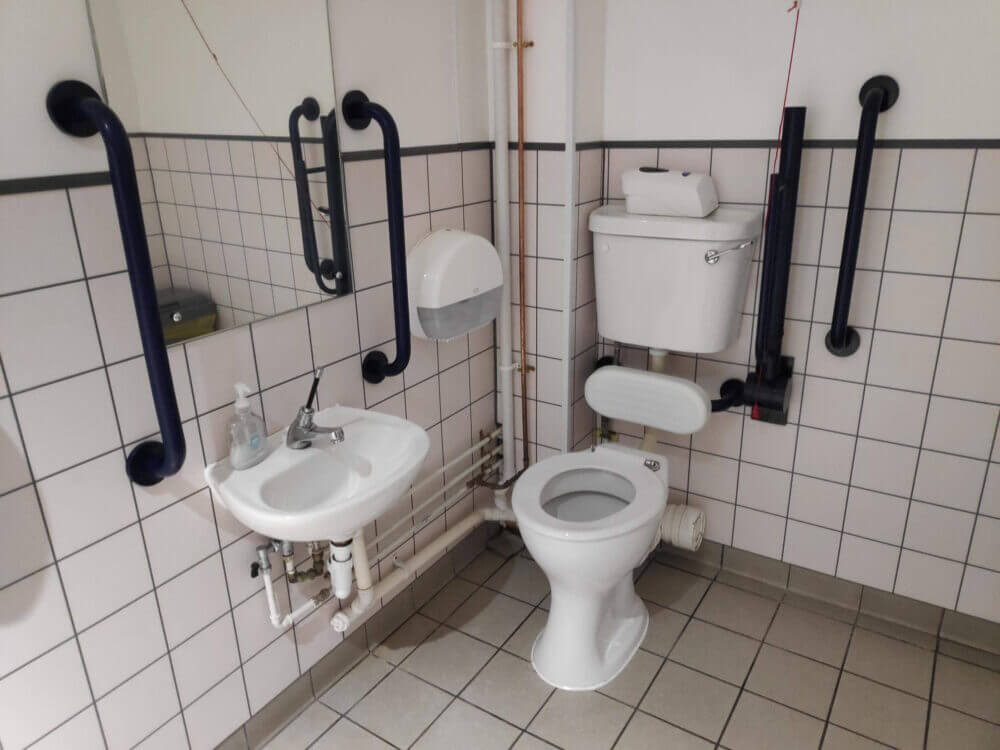
This one is a lot easier to guess at the origin of.
But in any case, “lavvy” is another slang term for the toilet or the bathroom and is still used in many parts of the country.
It’s certainly not as common as “loo” and might sound a bit dated to some British speaking ears. “I really need the lavvy!” for example. It’s particularly common in Scotland, too.
It’s not clear at what time this word became commonplace. It’s hard to say with phrases like this, where it’s simply a very natural shortening of the term “lavatory”.
As I say, it does seem to have originated in Scotland, though when we just can’t say.
The word “lavatory” dates back as far as the Middle Ages, so the shortening could have happened at any time since then.
Khazi
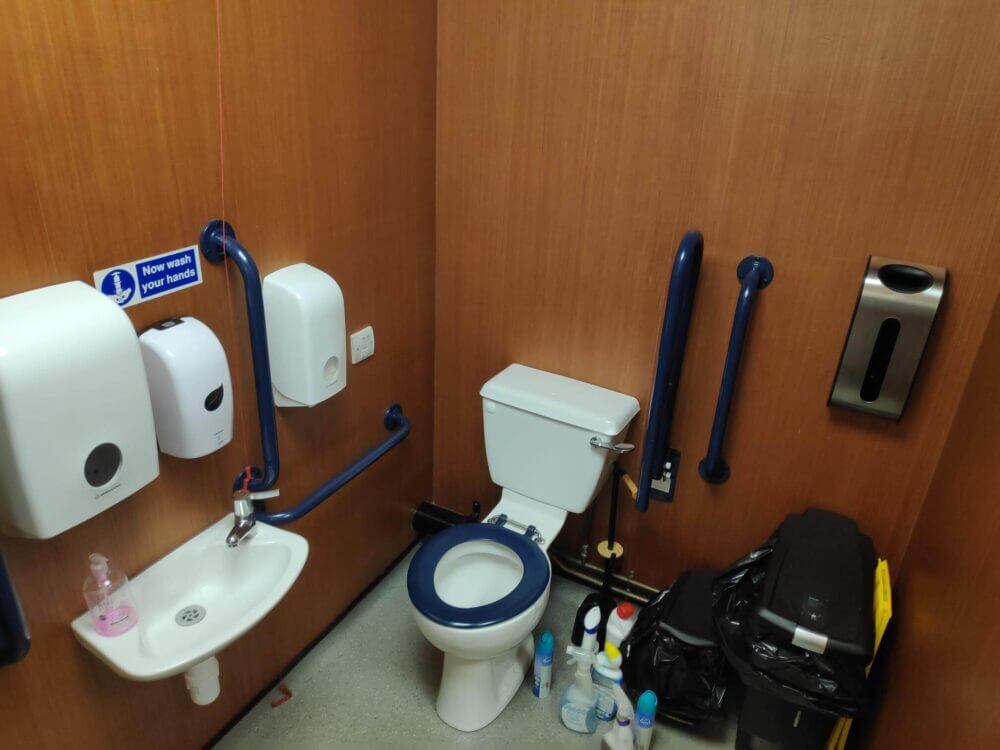
This one might sound a bit strange at first, and it certainly is one of the more unusual slang terms used for toilet in Britain.
It’s quite regional, and you’re only likely to be understood if you are in Cockney areas of London and parts of Liverpool. “I need to head to the khazi,” for example.
Pronounced kar-see.
The term originates in the 19th Century, and was simply a corruption of the Italian casa, meaning house.
The idea is that the toilet is its own “house”.
There are two special forms of slang used in this part of London, called Polari.
It was slang used by actors and showmen as well as members of the merchant navy, so it’s possible this is how it came to have this meaning.
Gents/ladies
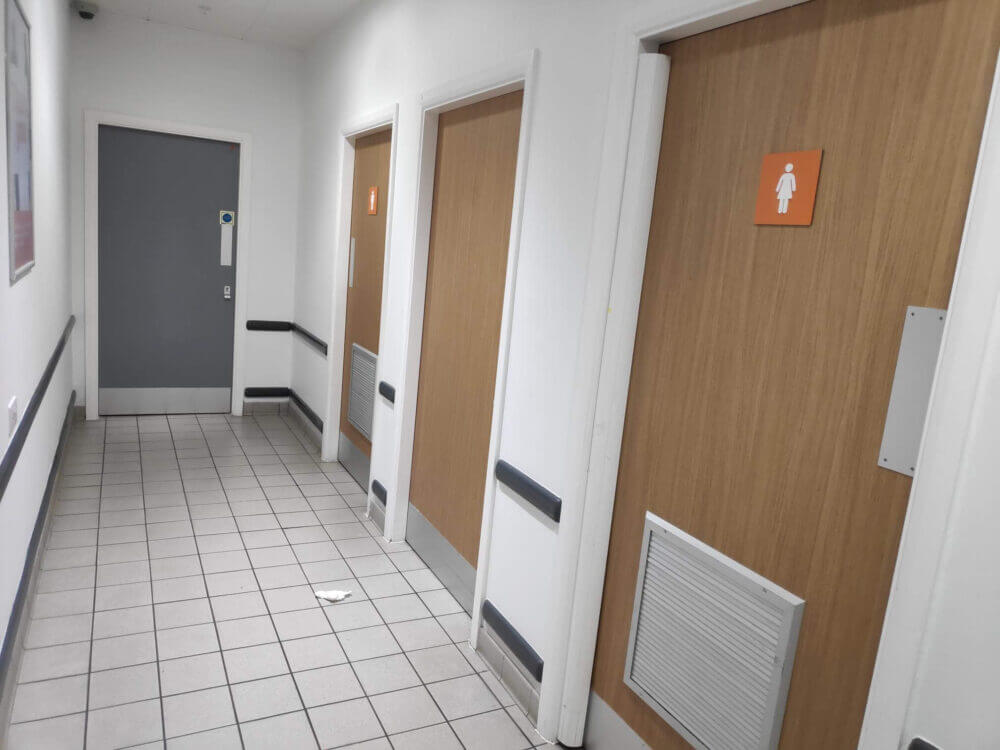
In polite situations, and specifically those where you are in a public place with gendered bathrooms, this might be the most likely form of slang you’ll hear the toilets referred to as: the “gents’” or the “ladies’”.
Again, I would say the meaning is quite clear here.
A gentleman would say “I’m just heading to the gents,”
for example, and the ladies would say the equivalent. It keeps out any unnecessary details while still letting everyone know what you’re doing.
Again, it’s really difficult to say when a term like this arose.
It almost certainly occurred in the last century, when eating out in restaurants and other kinds of public activities became more accessible and more popular.
Since at least the 19th Century, the men’s toilets have been referred to as the gentlemen’s toilets, and the ladies the same.
So, it’s again just a natural shortening of the phrase.
Little boys/little girls room
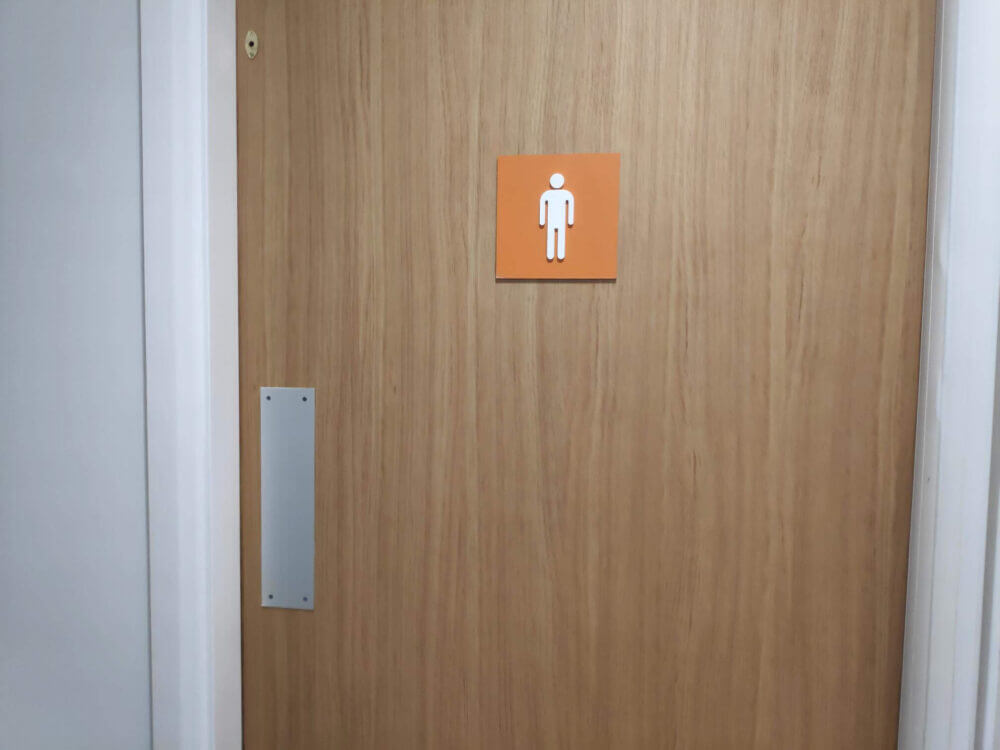
Now, this one might be a little bit dated today, but among the older generations, it is still in use to an extent.
To someone who has never heard this expression before, it can certainly sound a bit strange, and have some uncomfortable connotations.
But that is not at all what the implication is supposed to be.
It’s again simply a euphemism, a way of masking the subject by infantilizing it. “Can you pardon me while I go to the little boys’ room,” for example?
It seems to have come into use around 1935 and been quite popular until the middle of the 60s.
The idea was that it was often a struggle for parents to find public toilets that their children could use.
As I say, it’s certainly fallen out of use to a great extent today but is still heard from time to time.
Vin
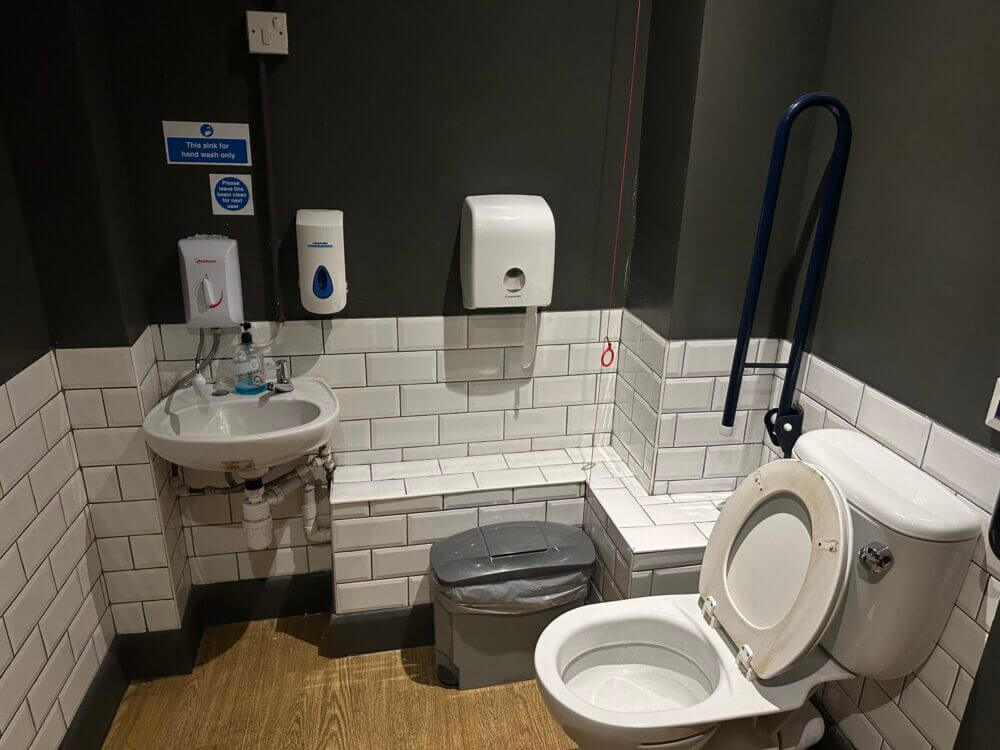
Here we have another one that might be considered a bit old-fashioned, but in the right places, you could still hear it.
“Vin” is an old slang term for an indoor toilet specifically.
That goes to show just how old the term is, since it originated at a time when indoor toilets were not the norm.
Its roots are in the aristocracy, then, and particularly in private schools.
Unfortunately, it’s not clear where the term originates etymologically.
It’s possibly a play on the French vin which simply means wine, the idea being you spend a lot of time in the vin after you’ve had too much wine.
But it’s just not clear.
Privy
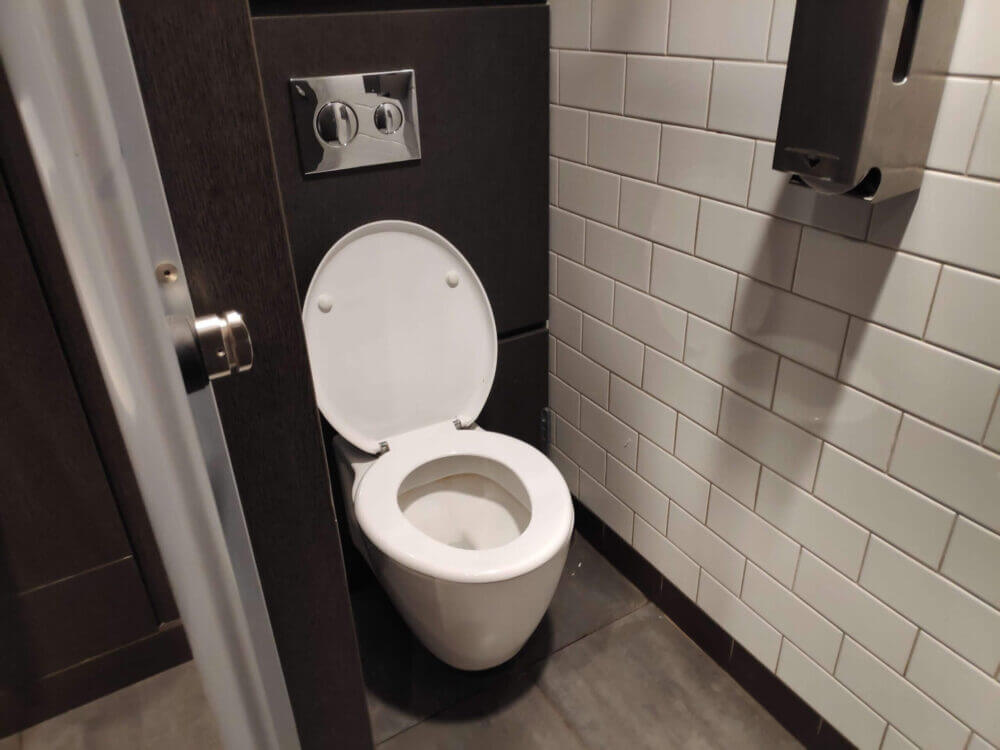
Here we have one that certainly is not in use today except as a kind of an ironic bit of humor.
“Privy” is an old medieval term for the toilet and one you’re more likely to hear in a fantasy TV series than you are in actual daily usage.
Nonetheless, it’s an interesting term with a long history. “I’ll be in the privy,” you might say.
The word itself actually had a couple of meanings.
On the one hand, it simply referred to a private circle, and thus you might have your “privy council” if you were king or a ruler of some kind. Indeed, even today, the British Royal Family and the monarch have their privy council.
So, the simple idea was that the toilet is “privy” because it’s a very private act, and not one shared with others.
Bog
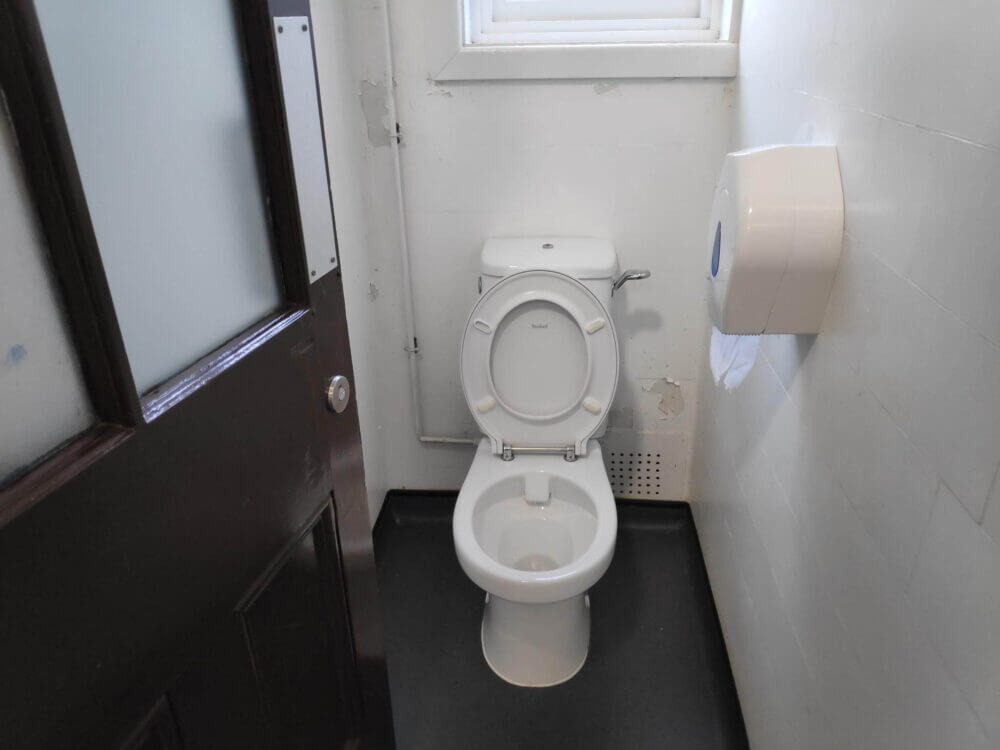
This one is another really common one, that will be understood pretty much anywhere in Britain and indeed the broader UK.
It’s not exactly the politest term to use, and so you might want to avoid using it in formal settings.
But in relaxed and familiar contexts, “bog” is a perfectly usual slang term to refer to the toilet.
It was once a lot more popular than it is, but it’s still widely used.
The term dates back to the 18th Century, when the term “boghouse” referred to the fact that most toilets were outdoors, and, if you were lucky, simply a hole suspended over a pit or bog.
A “bog” in English is a kind of swamp, so this is what the term refers to. It’s the muddy hole over which you would do your business.
Cludgie
Here we have a very specifically Scottish, and indeed Glaswegian, slang term for toilet.
The cludgie was the toilet, and you’re only going to be understood when saying this if you’re in Glasgow.
That said, it’s not a terribly old term. “Oh, the cludgie’s busy right now,” for example.
It seems to have originated in the 1960s, but the precise etymology is not clear. It’s possibly a conglomeration of “closet” and “lodge”, closet referring to the outhouse and lodge a sort of half-joking way to make the bathroom seem more grandiose.
This one, too, is not the sort of term you would use in polite company. It’s more vulgar even if only indirectly.
Netty
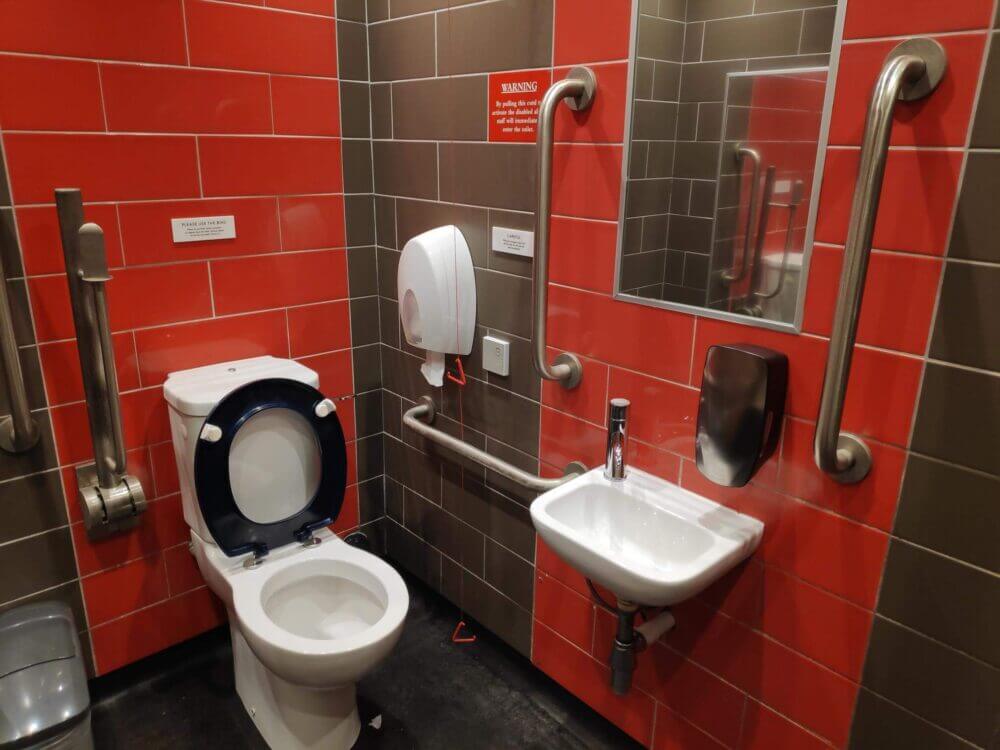
Here we have another highly regional term, mostly used in the northeast by Geordies in places like Newcastle and Durham.
It’s not the most commonly used term anymore, and again it’s highly regional, but it’s certainly still very much alive and well. “I’d better use the netty before we leave,” for example.
Though we are again not completely sure, the origin of this term seems to be in Italian.
The Italian word for toilet is gabbinetti, and so it is said that “netty” was simply corruption and shortening of this term.
Cat and dog
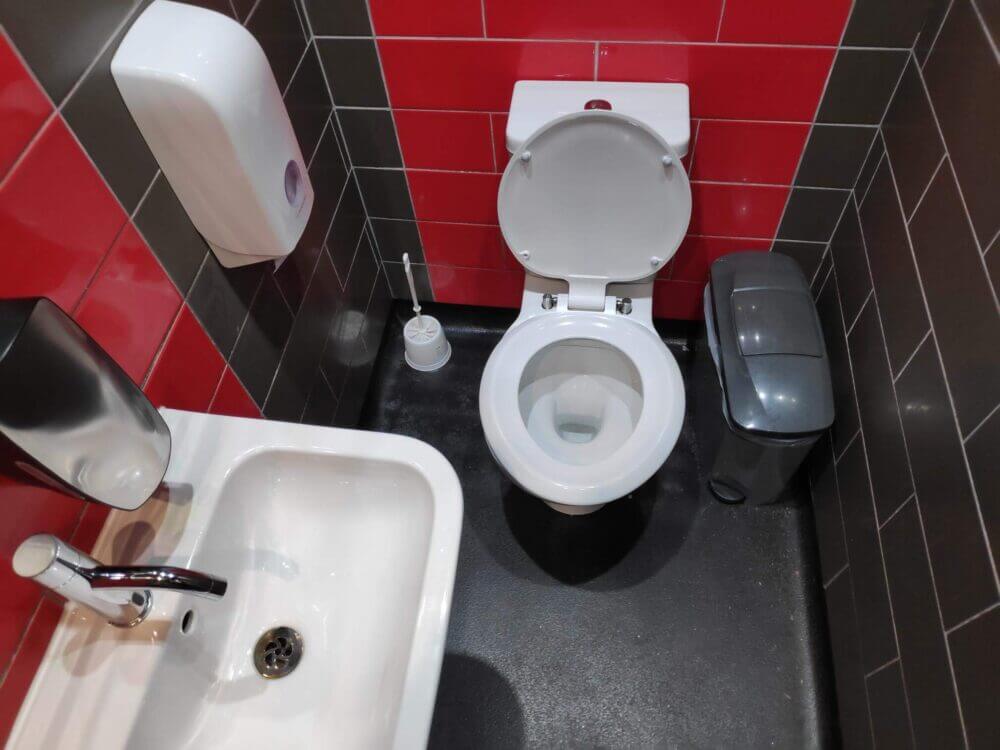
Finally, you can’t go wrong with a bit of cockney rhyming slang.
While, obviously, this is only used in parts of London, it’s nonetheless one of the most iconic areas of British slang.
“Cat and dog” is what you might refer to the toilet as in parts of London. “I’ve got to go to the cat and dog,” for example.
The origin is pretty clear: it’s just a rhyme with “bog”. It’s again very hard to trace the origin of most cockney rhyming phrases like this.
There’s no “logic” to it beyond the simple fact of its rhyming. So it could have arisen at any time in the last couple of centuries, it’s almost impossible to tell.
So you’ll never be short on slang terms to refer to toilets, then.
While some of these are more appropriate than others in the right situation, they’ll all work one way or another.
If you’re looking for a universal term, though, you can’t go wrong with loo—everyone, everywhere in Britain will know what you mean without you having to outright say “toilet”.
More in British Slang
- British Slang For Alcohol
- British Slang For Angry
- British Slang For Argument
- British Slang For Bad
- British Slang For Boss
- British Slang For Boy
- British Slang For Breasts
- British Slang For Butt
- British Slang For Car
- British Slang For Cat
- British Slang For Child
- British Slang For Cigarette
- British Slang For Coffee
- British Slang For Cold
- British Slang For Cool
- British Slang For Delicious
- British Slang For Diarrhea
- British Slang For Dog
- British Slang For Drunk
- British Slang For Easy
- British Slang For Expensive
- British Slang For Eyes
- British Slang For Face
- British Slang For Fat Person
- British Slang For Fist Fight
- British Slang For Flatulence
- British Slang For Food
- British Slang For Friend
- British Slang For Girl
- British Slang For Glasses
- British Slang For Going To Bed
- British Slang For Good
- British Slang For Good Luck
- British Slang For Goodbye
- British Slang For Gossip
- British Slang For Grandmother
- British Slang For Gun
- British Slang For Hair
- British Slang For Happy
- British Slang For Head
- British Slang For Helicopter
- British Slang For Hello
- British Slang For Horny
- British Slang For House
- British Slang For Hungry
- British Slang For Hurry Up
- British Slang For Husband
- British Slang For Idiot
- British Slang For Jail
- British Slang For Jerk
- British Slang For Job
- British Slang For Kiss
- British Slang For Knife
- British Slang For Loser
- British Slang For Lover
- British Slang For Lying
- British Slang For Menstruation
- British Slang For Money
- British Slang For Motorcycle
- British Slang For Mouth
- British Slang For No
- British Slang For Nonsense
- British Slang For Nose
- British Slang For Pajamas
- British Slang For Party
- British Slang For Police
- British Slang For Poor
- British Slang For Potato
- British Slang For Pregnant
- British Slang For Rain
- British Slang For Relax
- British Slang For Rich
- British Slang For Sailor
- British Slang For Sandwich
- British Slang For Scared
- British Slang For Sexy
- British Slang For Shoes
- British Slang For Silly
- British Slang For Soldier
- British Slang For Stomach
- British Slang For Surprised
- British Slang For Tea
- British Slang For Teeth
- British Slang For Telephone
- British Slang For Television
- British Slang For Testicles
- British Slang For Thank You
- British Slang For Thief
- British Slang For Tired
- British Slang For Toilet
- British Slang For Umbrella
- British Slang For Vacation
- British Slang For Vomit
- British Slang For Walking
- British Slang For Weird
- British Slang For Wife
- British Slang For Wonderful
- British Slang For Work
- British Slang For Yes
- British Slang Insults
- British Slang Quiz

